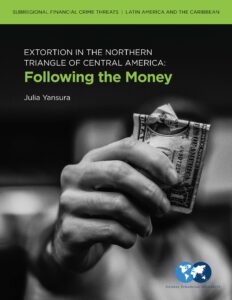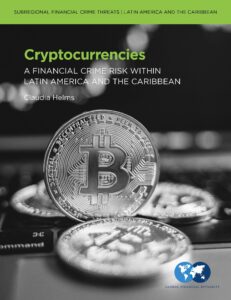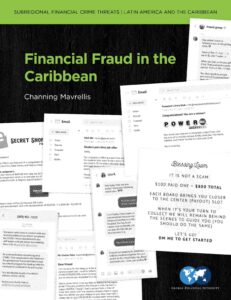Over the last three decades, the private investment fund sector has grown into a multi trillion-dollar global industry. In the Latin America (LatAm) region the market has seen slow but steady growth. Yet, the money laundering risks of private investment funds have received little international scrutiny or study during the same period.
The new Global Financial Integrity report, Private Investment Funds in Latin America: Money Laundering and Corruption Risks, examines the money laundering risk factors associated with these private investment funds. It analyzes the ring of actors and facilitators involved, the methods of contact used by perpetrators and the channels utilized to move illicit money in the LatAm region. A 2021 GFI report titled Acres of Money Laundering: Why the U.S. is a Kleptocrat’s Dream found that 54 percent of real estate money laundering cases were tied to illicit funds from the LAC region.
The report specifically aims to understand the size, scale, and money laundering risks from private investment funds in the LatAm region’s five largest economies – Brazil, Chile, Argentina, Mexico, and Colombia—and to provide recommendations on how best to mitigate and address the money laundering risks to both the LatAm region and the United States.
The identified risk factors include:
- A customer base often composed of wealthy individuals, including politically exposed persons;
- A close relationship between fund managers and their clients (investors);
- The use of shell companies and trusts to manage investments;
- Outsourcing operations and risk management;
- Weak transparency around source of wealth and source of funds; and
- Investment structures which may include multiple accounts in different jurisdictions, including secrecy and tax havens, with funds moving through a concentration account.
In recognition of these risks, along with other factors, GFI provides the following key recommendations:
- The Brazilian government, which has the largest assets under management in the region, should be the first to adopt AML regulations that will address future risks when they arise. As well as regulators pay closer attention to family office architecture and undertake a risk assessment of the sector.
- Latin American authorities should look to regulate intermediaries and enabler professions for AML/CFT due diligence as they are critical in allowing illicit money to move through the financial system within the region but also to be invested in private investment funds overseas.
- The United States, Switzerland, the Cayman Islands, Malta, and other countries within the EU should conduct a robust money laundering risk assessment of their private investment fund sectors.
- Latin American law enforcement authorities involved in corruption, drug trafficking, and organized crime investigations should be provided training on the complexities of private investment funds and the manner in which they can be used to hide illicit assets.
This report is part of a larger project by GFI that analyzes financial crimes in Latin America and the Caribbean. The project’s first report, Financial Crime in Latin America and the Caribbean: Understanding Country Challenges and Designing Effective Technical Solutions covered financial crime trends throughout the hemisphere. It looked at illicit proceeds from corruption, drug trafficking, mineral trafficking, trafficking in persons, and smuggling of migrants. Continuing with this effort, this report is part of a four-section initiative to understand financial crime threats in the hemisphere. The other reports are:
 |
 |
 |
||
| September 2022 | November 2022 | December 2022 |

